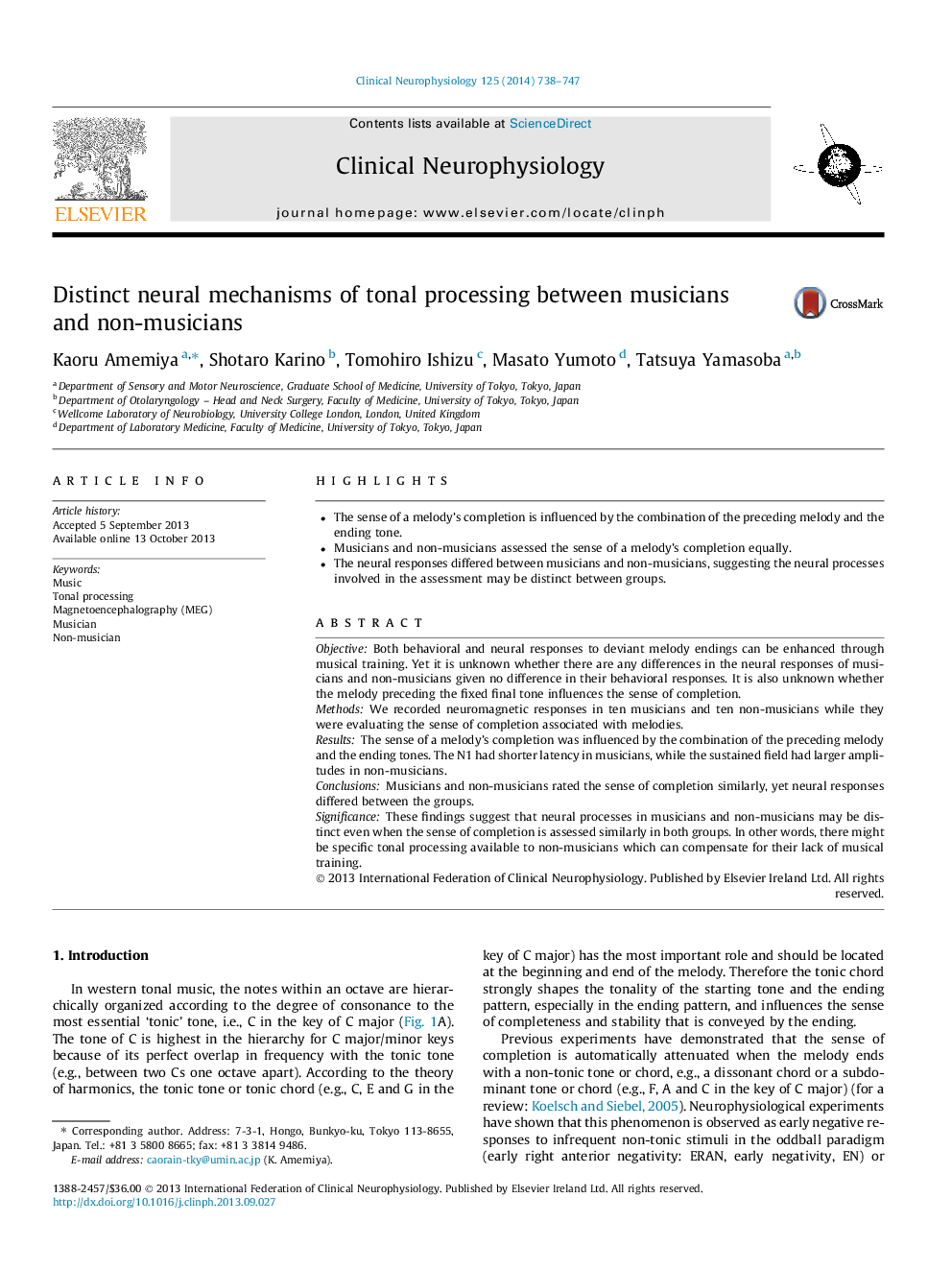| Article ID | Journal | Published Year | Pages | File Type |
|---|---|---|---|---|
| 6008406 | Clinical Neurophysiology | 2014 | 10 Pages |
â¢The sense of a melody's completion is influenced by the combination of the preceding melody and the ending tone.â¢Musicians and non-musicians assessed the sense of a melody's completion equally.â¢The neural responses differed between musicians and non-musicians, suggesting the neural processes involved in the assessment may be distinct between groups.
ObjectiveBoth behavioral and neural responses to deviant melody endings can be enhanced through musical training. Yet it is unknown whether there are any differences in the neural responses of musicians and non-musicians given no difference in their behavioral responses. It is also unknown whether the melody preceding the fixed final tone influences the sense of completion.MethodsWe recorded neuromagnetic responses in ten musicians and ten non-musicians while they were evaluating the sense of completion associated with melodies.ResultsThe sense of a melody's completion was influenced by the combination of the preceding melody and the ending tones. The N1 had shorter latency in musicians, while the sustained field had larger amplitudes in non-musicians.ConclusionsMusicians and non-musicians rated the sense of completion similarly, yet neural responses differed between the groups.SignificanceThese findings suggest that neural processes in musicians and non-musicians may be distinct even when the sense of completion is assessed similarly in both groups. In other words, there might be specific tonal processing available to non-musicians which can compensate for their lack of musical training.
